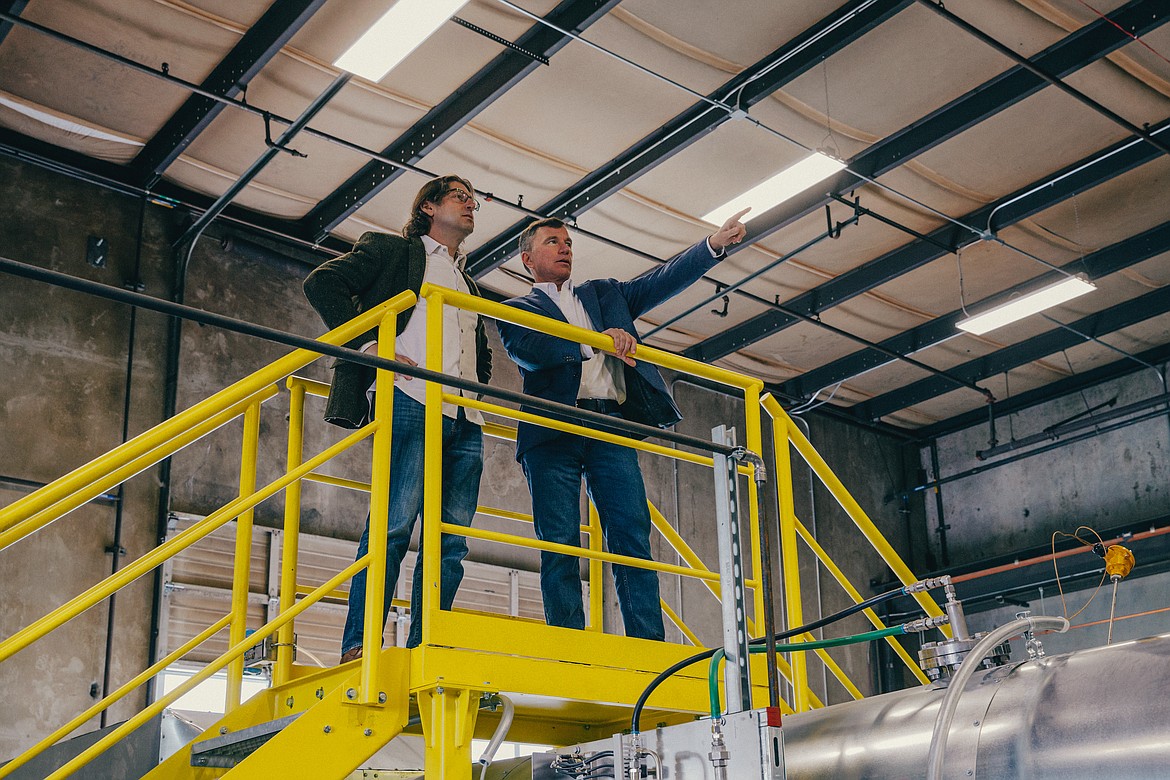Group14 eyes Moses Lake facility
Battery technology startup Group14 Technologies’ recently completed 27,000-square-foot production facility in Woodinville is only the beginning, according to co-founder and CEO Rick Luebbe.
“This factory outside Seattle shows that we’re not a science project,” Luebbe said. “We are a legitimate commercial player, and we’re ready to push the envelope in the electrification of everything.”
Luebbe said the battery storage technology company is now looking at building a much larger production facility in Moses Lake, which he hopes can begin construction sometime before the end of 2021.
“Just beginning to look at raising capital to break ground on that facility,” he said. “In a perfect world, I would like to break ground on that facility in the second half of this year, maybe in Q3 if we can get things lined up efficiently.”
“And that gets on schedule to get that factory commissioned and in production by the first part of 2023,” Luebbe added.
Group14 Technologies has pioneered a carbon-silicon composite to replace graphite anodes that gives rechargeable lithium-ion batteries 50% more capacity. Last fall, the company announced a partnership with REC Silicon to work at REC’s Moses Lake facility and use that company’s silane — silicon gas — in its process.
“We’re working with REC, and we still have an agreement and a great partnership with them,” Luebbe said. “We’re hoping to do great things with them in the future.”
Silicon has long been known to be a more efficient material for anodes — the portion of a battery where electricity enters — in rechargeable batteries. However, silicon molecules heat up as electricity flows through them, expanding and becoming brittle.
Luebbe said Group14 has solved that problem with a silicon-carbon composite called SCC55, which uses a carbon scaffolding to contain the silicon molecules, giving them space to expand without damaging the anode.
“We solved that expansion problem, and we’re really making silicon work,” Luebbe said.
The Woodinville facility is capable of producing around 120 tons of SCC55 per year, Luebbe said, Enough for smaller devices, such as watch and wireless earbud batteries, as well as a defense contractor looking to build lithium-silicon batteries for a military application.
“We can’t talk a lot about it, and it’s in evaluation, but it’s a different order of performance than they have had available in the past. And we’re pretty excited about that,” Luebbe said.
The company also has other customers buying its carbon-silicon composite, a spokesperson said.
The operational plant in Woodinville shows the world the technology and production process works and can be scaled up to production levels needed to build larger batteries, which Luebbe said he wants to build in the United States and export to the world.
“Lithium-ion batteries were invented here, but commercialized in Asia,” he said. “We don’t want that to happen with lithium-silicon batteries. That’s why our big focus is on the domestic supply chain, and specifically on doing a lot in Moses Lake.”
Luebbe said Group14 has chosen to locate in Moses Lake because of the area’s inexpensive hydropower, skill and expertise in advanced manufacturing, easy access to transportation and room to build and grow.
“Our objective is to create this battery materials infrastructure in the Moses Lake area and really support a domestic battery supply chain,” he said.
In December 2020, Group14 announced it had secured $17 million in funding from South Korean specialty gas manufacturer SK Materials — a subsidiary of Seoul-based industrial giant SK Group, which is one of the largest lithium-ion battery makers in the world — as part of what SK Materials CEO Lee Young Wook called the company’s constant search for “breakthrough technologies,” according to a Group14 press release.
(This article was updated with corrected information on May 10, 2021.)

